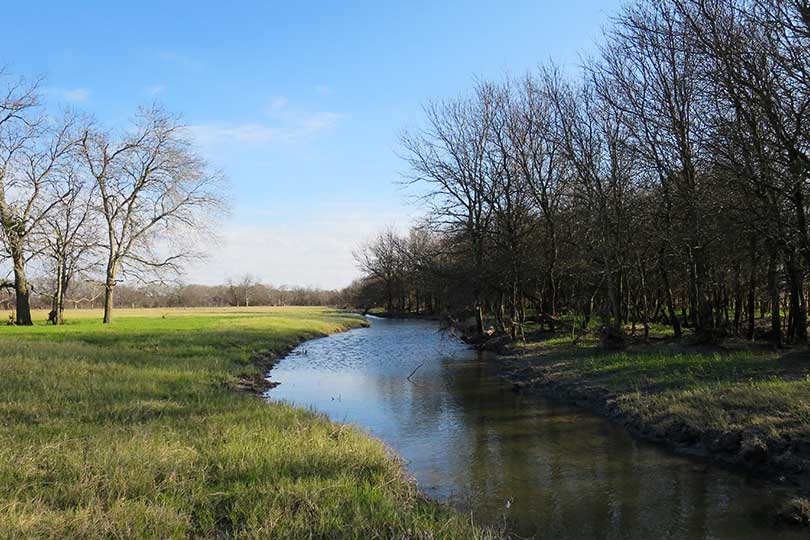By Julie Tomascik
Editor
Congress heard from the American Farm Bureau Federation this month regarding the updated Waters of the U.S. (WOTUS) rule.
Missouri Farm Bureau President Garrett Hawkins testified for the national organization, saying the updated WOTUS rule creates uncertainty and unnecessary costs for farmers and ranchers.
“Unlike many other industry sectors, the livelihood of our businesses depends on healthy soils and clean water,” he said. “We support the objectives of federal environmental statutes such as the Clean Water Act (CWA), however the ambiguity of where the line between federal and state jurisdiction lies has created confusion for landowners.”
Right now, farmers and ranchers across the U.S. face continued uncertainty with the regulations.
“We have lived in a world of regulatory uncertainty for decades due to everchanging rulemakings that redefine the scope of the CWA,” he said. “We have seen WOTUS definitions change with each administration, guidance documents offered and then rescinded and confusing litigation that have provided more questions than answers. Landowners, small businesses and American families are the ones who suffer the most.”
The administration’s WOTUS definition uses the “significant nexus” test, which will allow for more federal overreach.
“The use of the ‘significant nexus’ test allows the agencies to aggregate waters together, and the reliance on the vague term provides the agencies the latitude to reach whatever conclusion they choose,” Hawkins said. “It is impossible for any farmer to know if a feature on their property is a WOTUS.”
The new definition also significantly expands federal jurisdiction over waters such as ephemeral streams and small wetlands.
“Considering these features as jurisdictional ‘waters’ opens up the potential for regulation of activities on those lands that move dirt or apply products to the land,” Hawkins told the House Transportation & Infrastructure’s Water Resources and Environment Subcommittee.
“Everyday activities such as tillage, planting or fence building in or near ephemeral drainages, ditches or low spots could trigger the CWA’s harsh civil or even criminal penalties unless a permit is obtained.”
The rule would require landowners to hire environmental consultants, attorneys and engineers to ensure they are in compliance while trying to farm their land.
The WOTUS ruling is further complicated by a pending Supreme Court decision addressing the issue.
The Supreme Court ruling in the Sackett v. Environmental Protection Agency case could send the Biden administration back to the drawing board on the definition, resulting in more confusion for farmers, ranchers and landowners.
“Considerable government resources have been expended to craft this rule, which will only be wasted when the agencies have to return to the drawing board after a decision is handed down,” Hawkins said. “Introducing a new regulatory definition, to an already convoluted compliance process, is harmful to the regulated community. We must now adapt to these new and confusing rules, and our ability to plan any future business development will be hindered. Simply put, the agencies should have waited until a decision was handed down before finalizing this rule.”
Texas Farm Bureau joined Matagorda County Farm Bureau, American Farm Bureau Federation and 15 other organizations representing agriculture, infrastructure and housing in filing a lawsuit against the Biden administration’s rule.
But for now, questions still remain related to whether or not the federal government has jurisdiction over certain parcels of land.
“Farmers and ranchers want clean water and clear rules, so they can remain focused on what they do best—providing food, fiber and renewable fuel for our nation and the world,” Hawkins said.

